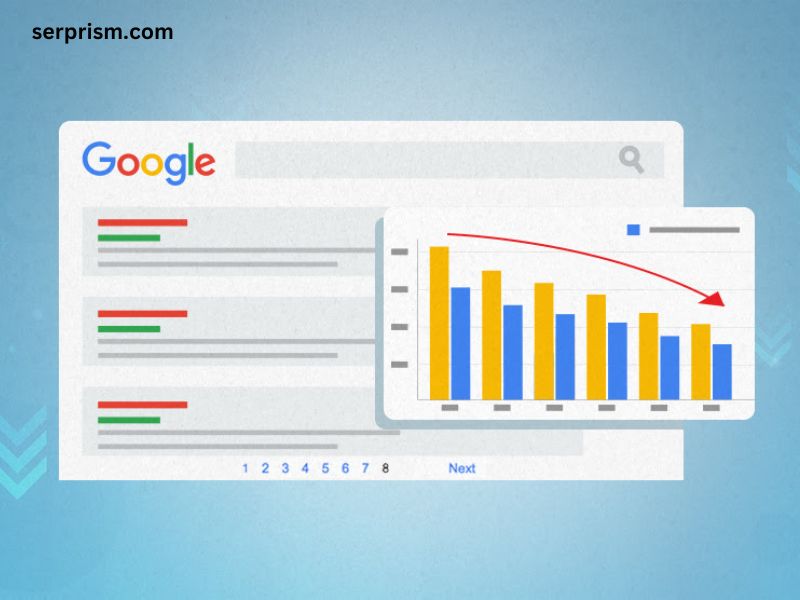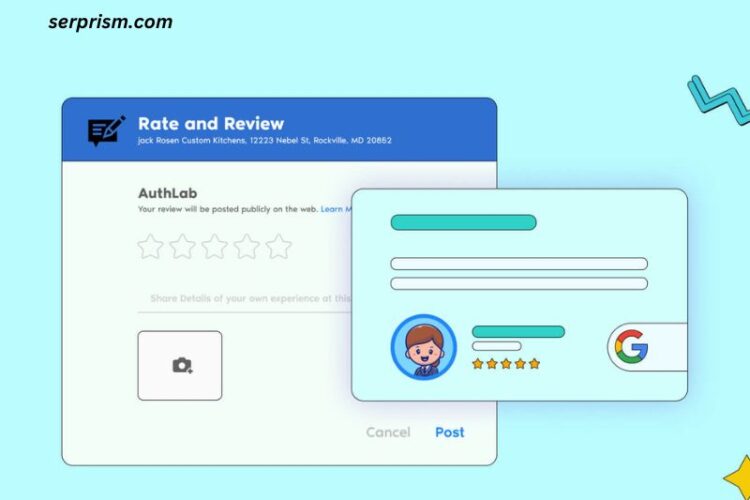
As a website owner or digital marketer, one of the most frustrating experiences is seeing your website ranked low—or not showing up at all—on Google. Despite investing time and resources into creating great content and optimizing your site, you might still be asking, Why aren’t I showing up on Google? If you’ve ever found yourself pondering this question, you’re not alone. Many websites face this challenge, and it often stems from a variety of factors that impact Google’s ranking algorithms.
In this comprehensive guide, we’ll break down the primary reasons why your website might not be showing up on Google’s search engine Ranking Results on Google pages (SERPs). Additionally, we’ll discuss actionable strategies that can help improve your visibility and boost your chances of ranking higher on Google.
1. Understanding Ranking Results on Google Algorithm
Google’s algorithm is complex and constantly evolving. Its purpose is to deliver the most relevant, high-quality Ranking Results on Google to users based on their search queries. Over the years, Google has implemented multiple updates to refine its ranking system. From Panda to Penguin, Hummingbird, RankBrain, and now BERT, Google uses over 200 ranking factors to determine where a webpage should appear on the SERP.
To better understand why your website might not be showing up, it’s important to realize that Google doesn’t just rank pages based on their content; it looks at hundreds of signals to decide the ranking position of each webpage.
2. Lack of Quality Content
One of the primary reasons your website might not appear in Google’s search Ranking Results on Google is the lack of high-quality, relevant content. Google prioritizes content that is useful, informative, and provides value to users. If your website lacks quality content, or if your content is too thin, shallow, or not comprehensive enough, Google might not rank it.
Actionable Tip: Focus on creating detailed, well-researched content that answers the questions your target audience is searching for. Include relevant keywords, use header tags, and structure your content to improve readability. Aim for content that covers a topic exhaustively.
3. Not Enough Backlinks
Backlinks are one of the most important ranking factors for Google. Websites with more quality backlinks are often seen as more authoritative and trustworthy in their niche. If your site has few or no backlinks, it may struggle to show up on Google.
Google views backlinks as “votes” for your content’s credibility and quality. The more authoritative sites that link back to your pages, the better the chance your content has of ranking higher.
Actionable Tip: Focus on building a solid backlink profile by reaching out to relevant websites, guest posting, creating shareable content, and engaging in other link-building strategies. But remember, quality backlinks are more important than quantity.
4. Technical SEO Issues
Even if you have excellent content, poor technical SEO can prevent your site from ranking well. Google uses web crawlers to index your pages, but if your website has technical issues like slow loading speed, broken links, or a poor mobile experience, it can impact your rankings.
Some common technical SEO issues that may prevent your website from appearing on Google include:
- Broken internal and external links
- Slow page loading speeds
- Mobile-unfriendly design
- Incorrect use of header tags (H1, H2, etc.)
- Not using HTTPS (secure website)
Actionable Tip: Regularly audit your site for technical SEO issues using tools like Google Search Console, Screaming Frog, or Ahrefs. Resolve issues like broken links, improve page speed, and make sure your site is mobile-friendly. Ensure your site uses HTTPS for better security.
5. Keyword Optimization Mistakes
Another key reason your website may not be showing up on Google is poor keyword optimization. Google’s algorithm uses keywords to understand what your page is about, but overstuffing your content with keywords or failing to use the right keywords can harm your chances of ranking.
You need to find a balance between using keywords that your audience is searching for and writing natural, engaging content. Keyword stuffing can result in a penalty, and not using enough keywords might make it hard for Google to understand your content.
Actionable Tip: Use keyword research tools like Google Keyword Planner, Ahrefs, or SEMrush to find the right target keywords. Include these keywords in your titles, headers, and throughout the content in a natural way. Focus on user intent to select keywords that align with what people are looking for.
6. Low Domain Authority
Domain authority (DA) is a score that predicts how well a website will rank on search engines. A website with low DA may struggle to rank for competitive keywords, even if the content is high quality.
DA is influenced by several factors, including the number and quality of backlinks, the age of the domain, and the overall reputation of the website. New websites or websites with a limited backlink profile may find it challenging to rank for more competitive keywords.
Actionable Tip: Build domain authority over time by consistently producing high-quality content, acquiring backlinks from authoritative sites, and ensuring your website has a clean and strong technical foundation. It’s a long-term strategy but essential for sustained success.
7. Google Penalties or Manual Actions
If your website has been penalized by Google, it could result in your site disappearing from search Ranking Results on Google. Google uses two types of penalties: algorithmic penalties and manual actions. Algorithmic penalties are triggered by changes to Google’s algorithm, while manual actions occur when a Google reviewer manually flags your website for violating guidelines.
Common reasons for penalties include:
- Black-hat SEO practices (e.g., keyword stuffing, cloaking, or buying links)
- Thin or duplicate content
- Hidden text or links
- Violation of Google’s Webmaster Guidelines
Actionable Tip: Check Google Search Console for any manual actions or penalties. If you’ve been penalized, rectify the issues, submit a reconsideration request, and follow best SEO practices moving forward.
8. Lack of Social Signals
While Google has stated that social media signals don’t directly impact rankings, there is evidence to suggest that social media activity can indirectly influence rankings. Social media platforms drive traffic to your site, and increased engagement can lead to more backlinks, brand awareness, and higher search visibility.
Actionable Tip: Promote your content on social media channels to drive more traffic to your website. Encourage shares, comments, and likes to increase engagement. Additionally, social signals can help spread awareness of your content, which may eventually result in more backlinks and improved rankings.
9. Competitive Keyword Space
Another reason why you might not be ranking on Google is the level of competition in your niche. If you’re targeting highly competitive keywords, it can be difficult to rank without substantial SEO efforts, especially if larger, more authoritative websites are competing for the same keywords.
Actionable Tip: Target long-tail keywords or niche-specific keywords that have lower competition but still attract relevant search traffic. Focus on creating content that’s highly specific and answers user intent better than your competitors.
10. Lack of Consistent Content Updates
Google loves fresh content. If your website hasn’t been updated in a while or if your content is outdated, Google may not view it as relevant anymore. Websites that consistently publish fresh, updated content tend to perform better in search rankings.
Actionable Tip: Regularly update old content to keep it relevant. Publish new articles, blog posts, case studies, and other content to show Google that your website is active and up to date.
11. Poor User Experience (UX)
User experience is a critical factor in ranking. Google aims to provide users with the best possible experience when they search for something. If your website has a poor user experience—such as slow page load times, poor navigation, or intrusive ads—it can negatively affect your rankings.
Actionable Tip: Focus on improving UX by ensuring your site is easy to navigate, visually appealing, and fast-loading. Optimize for mobile devices since a large portion of web traffic comes from mobile users.
Conclusion
If you’re asking, Why aren’t I showing up on Google?, it’s important to remember that ranking on Google is a complex process influenced by various factors. From content quality to backlinks, technical SEO, and user experience, each element plays a vital role in helping your site rank higher on Google. While it may take time and consistent effort to see significant improvements, implementing the strategies outlined in this guide will give you a better chance at improving your Google rankings and visibility.
By focusing on high-quality content, technical SEO, backlink building, and user experience, you can increase your chances of appearing on Google’s search Ranking Results on Google and ultimately drive more organic traffic to your site.




